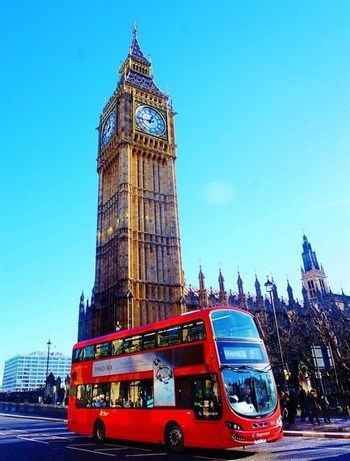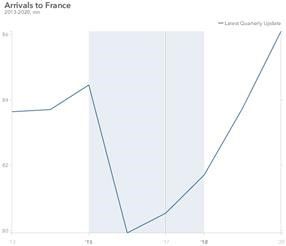
Top stories




EntrepreneurshipHow SMEs can build AI-ready businesses starting with the right technology foundation
Sudesh Pillay, WhyMAcForSME 2 days


More news



"However, it is likely that the perception of the UK as a safe destination will be impacted negatively in the short term, so those visitors intending to travel later in the year or in 2018, may alter their plans, postponing trips or choosing an alternative destination. Following the 7/7 2005 attacks in London where 52 people lost their lives, inbound tourism to the UK continued to grow strongly at 9% over 2004/2005, despite the terror attacks.”
She continues: “Trips for the peak summer seasons will unlikely be affected, due to advance booking. However, for trips taken later in the year, it is likely that some potential visitors will be deterred from travelling to the UK because of safety and security considerations and the increased frequency of the attacks in the UK. Terrorism is a threat that affects all destinations, and we have seen coordinated terror attacks across Europe across Germany, France, Belgium, Turkey and the UK.
For destinations, the most important factor is to ensure that visitors are safe, and so government response to the threat will be critical for reassuring planned and potential visitors to the UK. The speed of the response by the police and security services to the London Bridge attack will be reassuring to many. With the UK elections due on 8 June 2017, it is likely that the May government will re-establish the threat level to critical to help reassure the public.”
The UK has been experiencing a tourism boom after Brexit, due to the depreciation of the pound, losing 15% of its value since the vote to the leave the EU due to the uncertain macroeconomic climate, which has led to strong growth in inbound tourism demand. According to Euromonitor International’s Travel Forecast Model, for a multiple negative scenario, the UK could see a decline of 378,000 tourist arrivals over 2017-2020, knocking 1% off the UK’s potential growth over that period. The biggest impact of the decline will happen in 2017, with a drop in 285,000 arrivals expected to reach 36.6 million arrivals for 2017.

Over 2015-2017, France has been the victim of a spate of atrocities, with mass fatalities. Following the multiple attacks in Paris in November 2015, international arrivals to France dropped from 84.4 million to 80 million, a drop of 5% on the previous year. The unfortunate events in Paris following the terrorist attacks led to a decline in international arrivals to the French capital of more than 4% in terms of the number of people for the period 2015/2016, according to preliminary data from Euromonitor International.

Nadejda Popova, travel project manager at Euromonitor International, in a press statement, mentions: “For the period 2016/2017 we expect that figure to reach -0.9% which points out the fact that the capital is able to bounce back albeit slowly following the impact of these atrocities. Repeat threats, however, in any destination are expected to deter travellers and impact their holiday plans short to mid-term. This is the inevitability of such events on any destination worldwide.
The example of France as a tourist destination points to the fact that when events like this occur, this requires a quick rethink of tourism strategy, which encourages inbound tourists to visit destinations other than the specific city or location impacted by a terrorist attack such as Rhône Alpes and Provence Alpes Côte in the case of France. Improving customer service and boosting online and mobile bookings in addition to quick processing of visa applications for travellers from such markets as China, Thailand, Indonesia, and India can help diversify traditional source markets and counterbalance any negative impact of such terrorist attacks.”